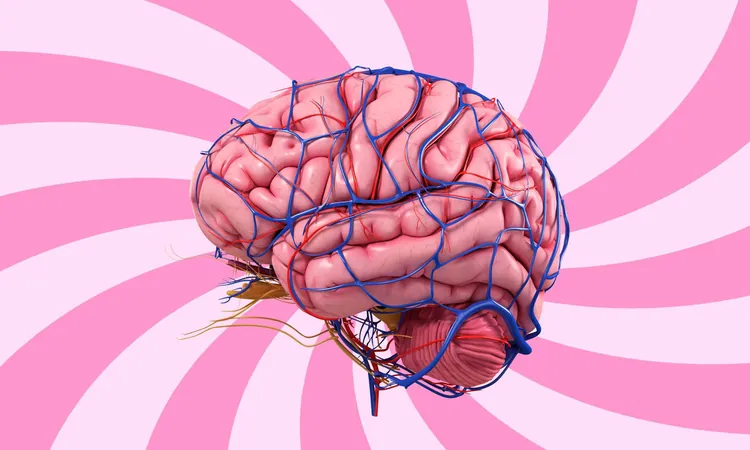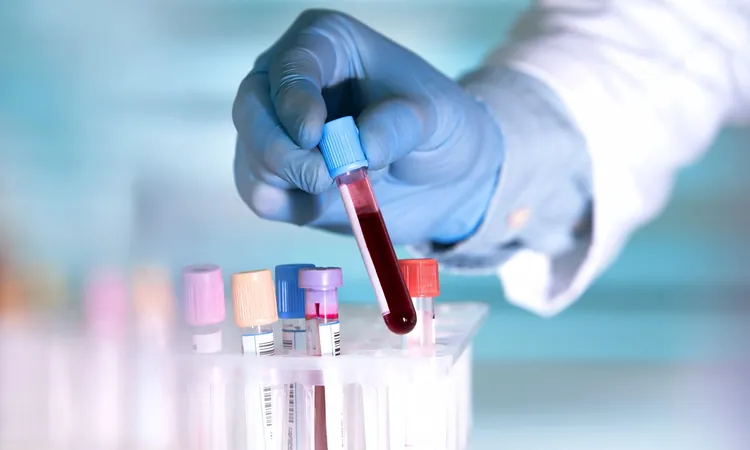
Why Your Brain Fears Pain More Than It Relishes Relief
2025-04-26
Author: Jessica Wong
The Fear Factor: Pain vs. Relief
Have you ever noticed how a small ache can overshadow the comfort of relief? It turns out, our brains are hardwired to react more intensely to the threat of pain than to the promise of comfort. A groundbreaking study led by Dr. Ulrike Bingel at the University Hospital Essen explores this intriguing phenomenon.
The Dark Side of Expectation: The Nocebo Effect
While the placebo effect works wonders through positive expectations of relief, the nocebo effect casts a shadow, amplifying pain and discomfort through negative thoughts. This research highlights how simply hearing negative warnings can incite anxiety, transforming harmless situations into sources of dread.
Why Good Times Fade While Bad Times Linger
You might find it easy to recall moments of discomfort but struggle to remember when you felt good. Studies suggest that unpleasant experiences are etched into our memories, serving as reminders to avoid similar situations in the future.
The Evolutionary Advantage of Negative Memories
Experts theorize that our brains' emphasis on threats has evolutionary roots. Dr. Bingel's findings indicate that nocebo reactions are not only more potent but also more memorable than their positive counterparts, reinforcing the prehistoric mantra: "Better safe than sorry."
The Brain's Tendency to Emphasize Bad News
Neuroscience reveals a startling truth: our brains light up more in response to threats than rewards. This instinctive response often occurs before we even recognize it, showing how deeply ingrained our sensitivity to negative cues is.
Personal Experiences Shape Our Pain Expectations
Your prior encounters with pain can skew your future expectations. While multiple positive experiences can cultivate trust in treatments, singular negative incidents can overshadow them, leading to a distorted perception of what to expect next.
The Impact of Care Providers on Patient Perception
A competent doctor can inadvertently heighten nocebo responses simply by discussing potential side effects. If a patient trusts their provider, even a small warning can seem catastrophic, reinforcing a cycle of fear.
Strategies to Combat the Nocebo Effect
Effective communication can play a significant role in mitigating nocebo effects. Focusing on positive outcomes rather than worst-case scenarios might help dissolve unnecessary fears. Additionally, addressing everyday stressors can curb anxious thoughts and prevent negative expectations from spiraling out of control.
Long-Term Implications of nocebo Responses
The consequences of nocebo effects extend beyond momentary discomfort. Linking innocuous treatments with negative outcomes can lead to avoidance behaviors, resulting in missed doctor visits and unmet health needs, ultimately diminishing quality of life.
Future Directions: A Hope for Improved Healthcare
As clinical teams delve deeper into the dynamics of nocebo effects, understanding personal and social triggers can pave the way for more empathetic care. Adjusting how doctors communicate about treatment options may well protect patients from the pitfalls of fear-driven responses.
This compelling study sheds light on the intricate connections between human psychology and pain perception, emphasizing the need for awareness in healthcare interactions. Published in eLife, these findings could transform how we approach both comfort and discomfort in medical treatment.



 Brasil (PT)
Brasil (PT)
 Canada (EN)
Canada (EN)
 Chile (ES)
Chile (ES)
 Česko (CS)
Česko (CS)
 대한민국 (KO)
대한민국 (KO)
 España (ES)
España (ES)
 France (FR)
France (FR)
 Hong Kong (EN)
Hong Kong (EN)
 Italia (IT)
Italia (IT)
 日本 (JA)
日本 (JA)
 Magyarország (HU)
Magyarország (HU)
 Norge (NO)
Norge (NO)
 Polska (PL)
Polska (PL)
 Schweiz (DE)
Schweiz (DE)
 Singapore (EN)
Singapore (EN)
 Sverige (SV)
Sverige (SV)
 Suomi (FI)
Suomi (FI)
 Türkiye (TR)
Türkiye (TR)
 الإمارات العربية المتحدة (AR)
الإمارات العربية المتحدة (AR)